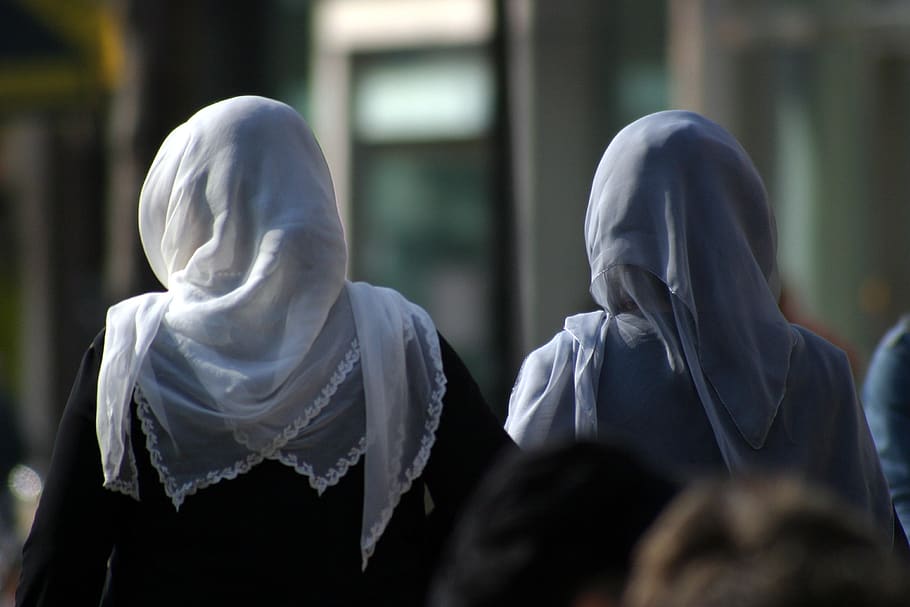France is once again mired in a controversial debate about Muslim women’s veiling.
This time, it involves the rights of mothers who wear the headscarf to accompany their children on public school field trips. At stake now is the fate of a bill, introduced by a senator from the party Les Républicains and passed by a majority in the French Senate. The proposed law would prohibit parents from wearing religious garb during school trips.
In its current form, the bill is not expected to pass in the French Assembly. Still, a recent survey of one thousand French citizens revealed that 66% of respondents favour such a ban. Given this level of popular sentiment and the persistence of right-wing efforts, the debate is unlikely to disappear.
The argument goes like this: since students are not permitted to wear a headscarf, as of the 2004 legislation banning “ostentatious religious symbols” in public schools, why should their mothers be allowed to wear it during school educational activities? As chaperones, they play the role of public servant.
Local controversies over this issue have arisen over several years. Last October, a video of a far-right elected official publicly castigating a mother for wearing her headscarf went viral and sparked a renewed debate about the issue. The mother had been chaperoning schoolchildren at a visit to the regional assembly. In the video her son is seen crying, burying his head in her arms.
I have conducted research on Muslims in France beginning in 2006. As a qualitative sociologist, I immersed myself in mosque communities in the city of Lyon, focusing especially on the banlieues, the stigmatized urban periphery where a significant percentage of Muslims reside. Over time, during my research and frequent visits, I followed the deteriorating situation of French Muslims trying to practice their faith in their everyday lives.
Whether it’s trying to access halal food in school cafeterias, secure municipal permission for building an Islamic school, or wearing a “burkini” at the beach, Muslims often face obstacles and almost always stigma.
The ban on the headscarf in public schools had severe consequences, even if it eventually became fully normalised. It created a strong sense among many Muslims that they were being uniquely targeted supposedly in the name of laïcité. It also prompted an unknown number of young women to drop out of school. In the working-class area I studied, I met several teenage women who had chosen to quit school, having grown tired of taking their headscarf off at the entrance door.
Fatima, for example, was 22 when I met her and dropped out of school as a teenager, much to her mother’s regret. “My life is full,” she mused. “I stay busy with my Islamic study.” A few years later, another debate began, about banning the niqab, or “burka,” in all public spaces. Lynda was Fatima’s sister and the only woman I personally knew who wore the niqab. Recalling the debates leading up to the 2004 legislation, she lamented to me, “it’s starting again.” In 2011, with little opposition, the government banned the niqab in all public spaces. Fed up with the situation and with no hope for improvement, Lynda later emigrated.
Given this backdrop, it seems particularly cruel this time, to go after mothers.
After all, they are simply trying to support their children and participate in their educational lives. The majority of Muslim women I met said they had difficulty finding steady employment due to discrimination. They often instead took great meaning and purpose in encouraging their children’s education.
Sumaiya, a single mother and immigrant from Syria, struggled every day to care for her son while searching for work. I remember her excitedly accompanying her son on a school trip and festivity at a municipal office in their banlieue. She held high hopes for him and imagined him fully integrating into French society. Excluding someone like her from this domain of her child’s life, and civic life more broadly seems both cruel and unnecessary.
And what message would it give to her child? People who experience daily racism and stigma learn to cope. But there’s a particular kind of pain, even rage, that comes from witnessing one’s parents being insulted or humiliated. The current debate about mothers serves only to feed that sense of humiliation.
To be sure, President Emmanuel Macron clearly denounced efforts from the far right to expand the scope of headscarf bans. But he also stated that the continued presence of the headscarf represents a “failure of [our model]” to integrate its Muslim citizens. In the same vein, Education Minister Jean-Michel Blanquer stated that the headscarf is “undesirable” as well as inessential to being a good Muslim.
It is remarkable that a state official in a secular republic can make a theological judgment like this. More urgently, what does it say to a religious minority when a government minister singles them out, declaring one of their practices “undesirable”?
Politicians on the right accuse the administration of being ambiguous and are calling on Macron to take a clear position on the issue. In a way they are correct. It hardly adds clarity to disavow new legislation while at the same time promoting contempt.
Fifteen years after the headscarf ban in public schools, it is difficult to claim that France has moved closer to its goals of integration, gender egalitarianism, and its highest ideals of secularism. Targeting mothers in headscarves will not help and is arguably, destructive.
It would stoke more humiliation and pain, setting the stage for another generation of French Muslims to question whether they belong.
Z. Fareen Parvez

